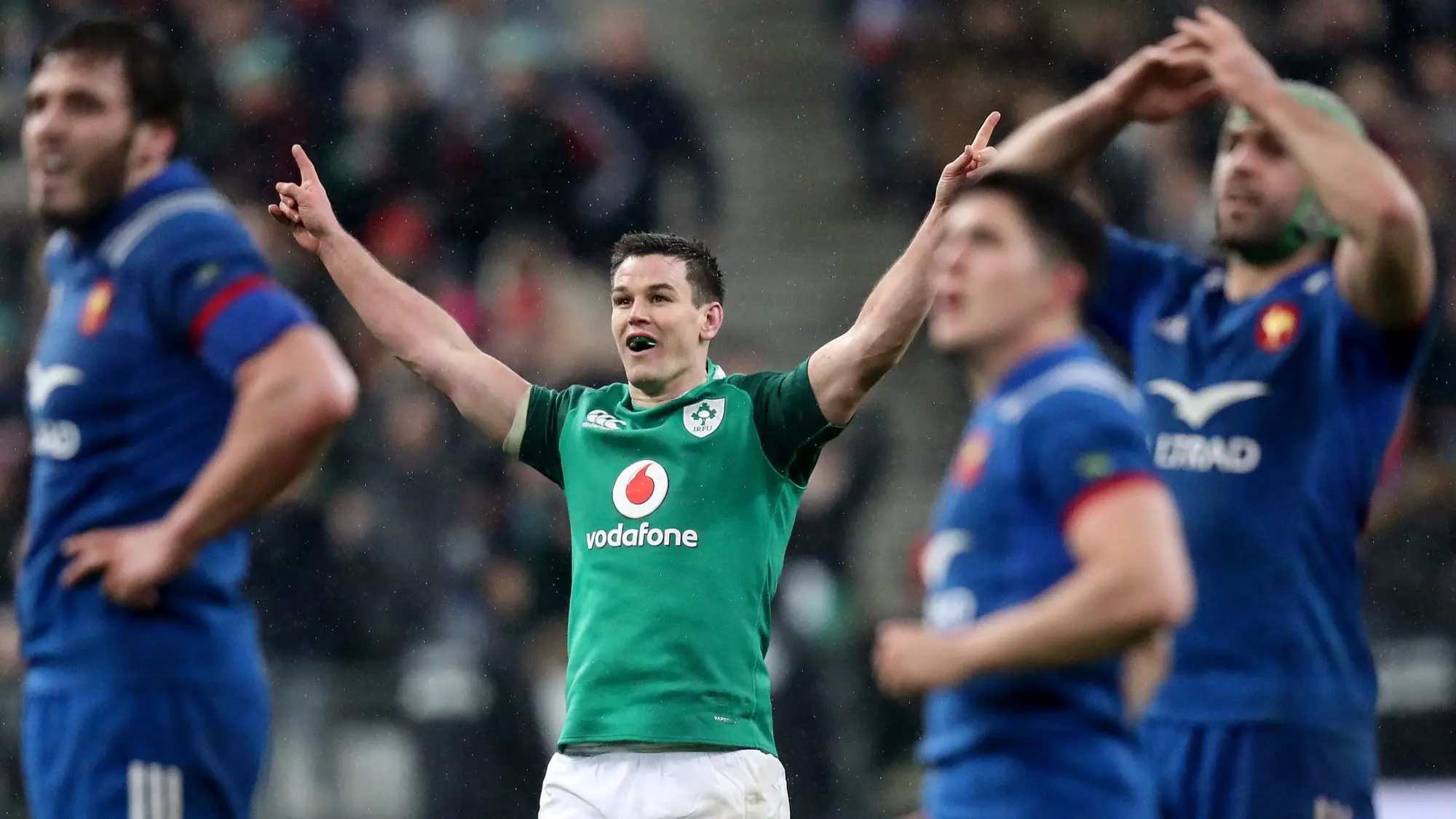Joe Schmidt had no qualms about throwing Tadhg Beirne into the cauldron of a Grand Slam clash for his Guinness Six Nations debut – but considering the second row’s pedigree that should not come as a surprise.
While he is now turning the ball over for fun and ruling the lineout for Munster, it was in Wales that he first established himself as a lock of the very highest calibre.
In a two-year spell with the Scarlets, Beirne won one Guinness PRO12 title and reached the final in another, earning himself a contract with Munster in the process.
He has since been given his chance at Test level, and as Ireland try to deny Wales the Grand Slam and keep their own Guinness Six Nations hopes alive, he has been trusted with the start in Cardiff with Iain Henderson out.
That might seem a risk, but Schmidt is confident the 27-year-old is ready for the challenge.
He said: “Tadhg knows these (Welsh) players pretty well, obviously he’s played plenty of times against the second rows that are going to be there.
“He’ll know Adam Beard and Alun Wyn Jones well, he’ll know his former Scarlets team-mates very well. With that combination, I think he’s as ready as we can get him to be at this stage. I know he’s incredibly motivated to be as ready as he can be.
“He would have liked to have a bit more game-time leading into it, and it’s one of those things, you’d love to go two weeks in a row with the same team. We haven’t really been afforded that luxury with the different injuries, so it’s just a case of slotting people in.”
Schmidt has been forced to make a number of changes over the course of this year’s Championship, with the likes of Garry Ringrose, Robbie Henshaw and Devin Toner among those to have missed time.
That has seen a number of players given their opportunity, and while it may have made Schmidt’s job more difficult in the short-term, he believes the long-term benefits will be clear for all to see.
He said: “As I’ve said all through the Six Nations, it’s been a really positive challenge for us to see if we can mix and match players and still try to get some cohesion.
“Thankfully we got that last week, can we build on that and get it again? Obviously we’ve lost two guys in the pack, so there’s a little bit of change there.”
As well as Beirne, the other change to the pack sees Sean O’Brien return for the injured Josh van der Flier.
One man who may have a bigger role on Saturday is James Ryan, Guinness Man of the Match against France.
With Henderson out, Ireland will have to look elsewhere for their lineout calls, and Ryan explained that it will be a group effort to call the lineout against Wales.
He said: “I’ve learned plenty off Hendy and Dev over the last season or two. It’s very much a shared responsibility. Tadhg calls at Munster and Peter (O’Mahony) has so much experience as does Besty (Rory Best) so there will be plenty of communication along the line.”
A common theme of Wales’ success has been their ability to stifle their opponents’ attack throughout the Championship.
Whether it was England in Cardiff in Round Three or Scotland at BT Murrayfield last week, the Welsh have survived long periods of defending their line.
That will be the challenge for Ireland, beaten on each of their last two trips to Principality Stadium.
And Schmidt explained that his team will have to play an attacking game, rather than trying to be drawn into an arm wrestle.
He added: “It’s very difficult to score against them, particularly at home.
“Last year we scored five tries against them so it’s not a case of not being capable of doing it, but they do grow another leg at Principality Stadium.
“That’s going to be a challenge for us. We go in there to play. You can’t afford to go into your shell. They will have a similar attitude to a degree.
“They will certainly play a territorial game, it’s the way they have tried to manage the Guinness Six Nations so far so they will make sure we have to work our way out of our half more often than not.”
